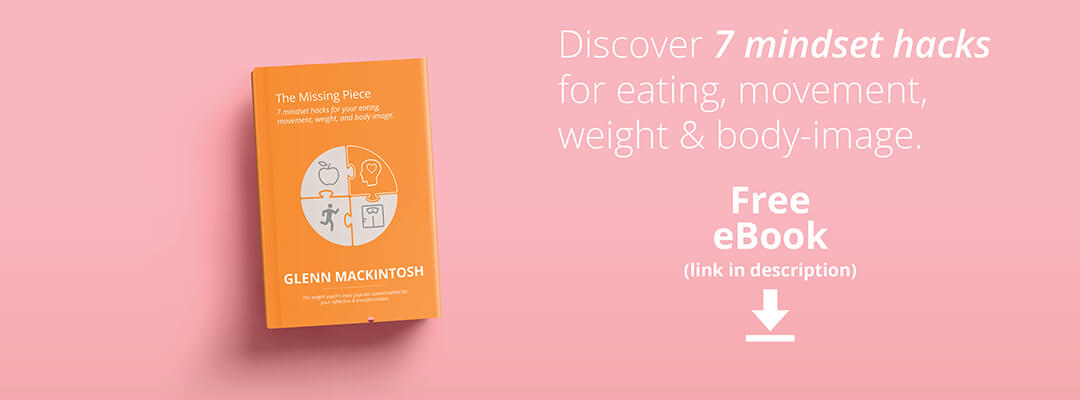
Hello Blogees it’s been a while since our last blog, like you I’ve been flat out finishing up work, running around buying pressies (this year, I must say, my family has scored big time!), and trying to squeeze in some time to take care of myself. I have been wanting to write to you about mindful eating for some time, and I’ve been having so many conversations with my clients around the benefits of mindful eating at Christmas, that now it the perfect time. Christmas is the worst time to start a diet, but you can learn some important abilities which will allow you to relax about food and eat better at the same time. I know you’re busy at this time, but taking the five minutes to read this blog could change your Christmas, and set you up for the healthiest New Year Yet…
Mindful eaters are healthier, have lower rates of eating disorders and, yes, sit at lower body weights than dieters. As an avid researcher and Star Wars geek in equal measure, I feel you can appropriately think of Mindful Eating as the way of the food-Jedi (and dieting as the dark side of the force).*
So what exactly is mindful eating, anyway? I’m sure you’ve heard of it, but how do we do it? As you already know, I’m a massive research geek, so I will explain it in terms of our scientific understanding. There are various questionnaires of mindful eating, also called intuitive eating (which is a great name as, unlike dieting, it becomes natural over time!), and mindful and intuitive eating are so similar that I, in a stroke of pure genius, coined the term “Mindful-Intuitive Eating” (I tell my health professionals in their workshops that the research on them is so similar, they can be considered the same thing!).
BONUS FOR OUR READERS: Take a test and compare yourself to norms on the Intuitive Eating Scale – one of the forefront questionnaires of mindful/intuitive eating (note, this test is part of our WMP online profile for weight management, and takes about 30 minutes to complete!).
There are five key principles to Mindful-Intuitive Eating.
- Freedom to eat all foods. Mindful eating starts with choice. If we forbid foods, we tend to want them more, feel guilty when eating them, and then eat more because we feel guilty…for 97% of people it stuff up your brain (for more on this see my blog “The Diet +”). Don’t worry, this does not mean you have to eat all foods, it just means you can. Mindful eating is not just about eating whatever you want though – it involves dancing around all five **
- Being present when you eat. I like to think of presence of mind as the “price of freedom”. When you are eating, eat. This may mean you eat slowly and savour the tastes and textures when you eat. For many of my clients, the biggest “bang for buck” strategy is actually to take away distractions (as an experiment, turn off the TV, switch off the phone, and have dinner at the table…you’ll probably find you naturally eat more mindfully – although it can be challenging at the start too!)
- Honoring your body’s hunger and fullness. Your body is a wonderful self-regulator. Parents telling us we have to eat everything on our plate teach us to ignore our fullness, diets telling us we cant eat for certain periods teach us to ignore our hunger, but those signals are there, and you can get back in touch with them. If you learn to listen to your natural start and stop mechanisms, it will be easy to know when and how much to eat (did I hear somebody say “diet book burning ceremony?”…oh, it was me).
- Transcending non-hungry cues. This one takes time and practice! Most of our extra eating is non-hungry, and it’s not that non-hungry eating is “bad” – it’s just that most of us to more of it than we’d like. When you listen to your body, and realize often you are eating for non-hungry reasons, like emotions, social expectations, or just because the food is there, and you can learn to deal with those cues in new ways.
- Eating foods you body likes. When you forget about dieting “rules” or even dare I say it weight loss, you still need motivation to eat well. When you are thinking about eating choices, try to think about how the food effects you – and beyond the short period of eating. Think “will this food and amount make me feel fresh, empowered, and energized, or bloated, annoyed with myself, and sluggish?” When you consistently pair good food choices with feeling good you will develop a powerful internal motivation to eat well that will last forever.
BONUS FOR OUR READERS: Of course, you have to be mindful to be mindful – Click here for a downloadable Mindful-Intuitive Eating Reminder.
So have a play with the principles of mindful eating over Christmas. If you try to diet you will have about as much luck as you do getting that surprise overseas holiday you want in your stocking. You’ll probably eat what you always eat, and feel guilty the whole time. Instead, practice dancing around the mindful eating principles – you’ll probably eat less than you normally eat at Christmas (even if it is more than you eat at other times), and you will have played around with some new abilities that will help you well into the new year. This approach develops a very “robust” healthy eating style***, so by next Christmas, you will be such a mindful-intuitive eater that eating well will be absolutely no worries for you. Oh, and remember not to get too stressed – your health is less determined by what you do between Christmas and New Year, and more between New Year and next Christmas!
MERRY MINDFUL CHRISTMAS!!!
I created this blog for people just like you.
If you found it valuable, please help me share it with them!
*Click here for a link to my colleague Linda Bacon’s groundbreaking study, where she compared mindful eating and dieting in a controlled trial.
**Think about “dancing around the principles” of M-I eating. They are not rules to be followed to the tee, and as you may see, prioritizing some will often lead to different choices than others. The key is to be mindful of balancing the principles in a way that suits you and the situation you’re in.
***It’s not as sensitive to holidays, busy periods, eating out, family coming to stay, or any other factors that normally throw off an eating plan, as the abilities become natural over time.





